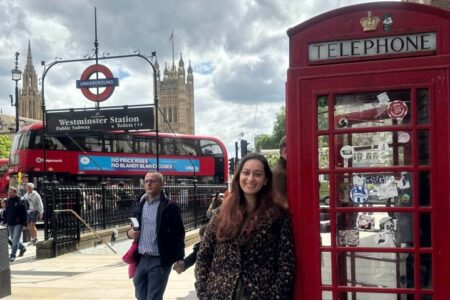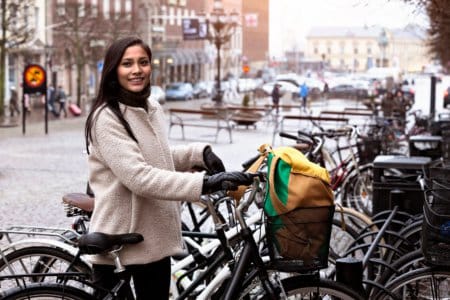
Most dream of studying in Paris or London. But those in the know are choosing to study in Lausanne, a Swiss city that quietly offers the best of both worlds: elite education and an unbeatable lifestyle.
The best small city in the world is home to universities like EHL Hospitality Business School, EPFL, and the University of Lausanne. It may be the fourth-largest city in Switzerland, but it is home to 25,000 students from 125 different countries.
Outside the classroom, life is set against the backdrop of Lake Geneva and the Jura Mountains. Weekends are for paddleboarding on the lake, skiing in Verbier, or exploring nearby cities like Milan and Lyon.
If you plan to study in Lausanne or EHL specifically, then you’re in luck. Two EHL students — Chloe Michaud, a recent graduate and Vedika Bansal, a final year student — reveal everything you need to know about what it’s like to live here.
Michaud, who is a Swiss-Singaporean hospitality graduate, and Bansal, who is of Indian nationality, are both Gold Student Ambassadors of EHL, meaning they are outstanding students and have extensive knowledge of the campus and the city.

Chloe Michaud, a Swiss-Singaporean hospitality student, journeyed from EHL Passugg’s snowy mountains to vibrant Lausanne, progressing from a Swiss Professional Degree to the bachelor’s programme at EHL. Source: EHL Hospitality Business School
1. French isn’t required, but here’s why you’ll want to master it
Swiss French is spoken by about 22% of the Swiss population, roughly 1.5 million people. But for many international students, not knowing the language isn’t a deal-breaker. English is widely spoken and understood across the country, especially in schools and cities.
“I’d say around 90% speak English, so English is more than enough to get by,” Michaud says. “I have friends at EHL who studied French but never really used it in daily life, which is a pity because they missed the chance to practice.”
Still, she thinks learning some French is worth it. Simple phrases for greetings or ordering food can make a difference. It helps you step outside your comfort zone and feel more connected to the local environment. Swiss locals tend to notice and appreciate even a small effort.
Bansal agrees. “I’d recommend learning the basics, like how to ask for a table at a restaurant or simple everyday phrases,” she says. “You’re here for three to four years, so if you don’t pick up at least the basics, it’s not ideal.”
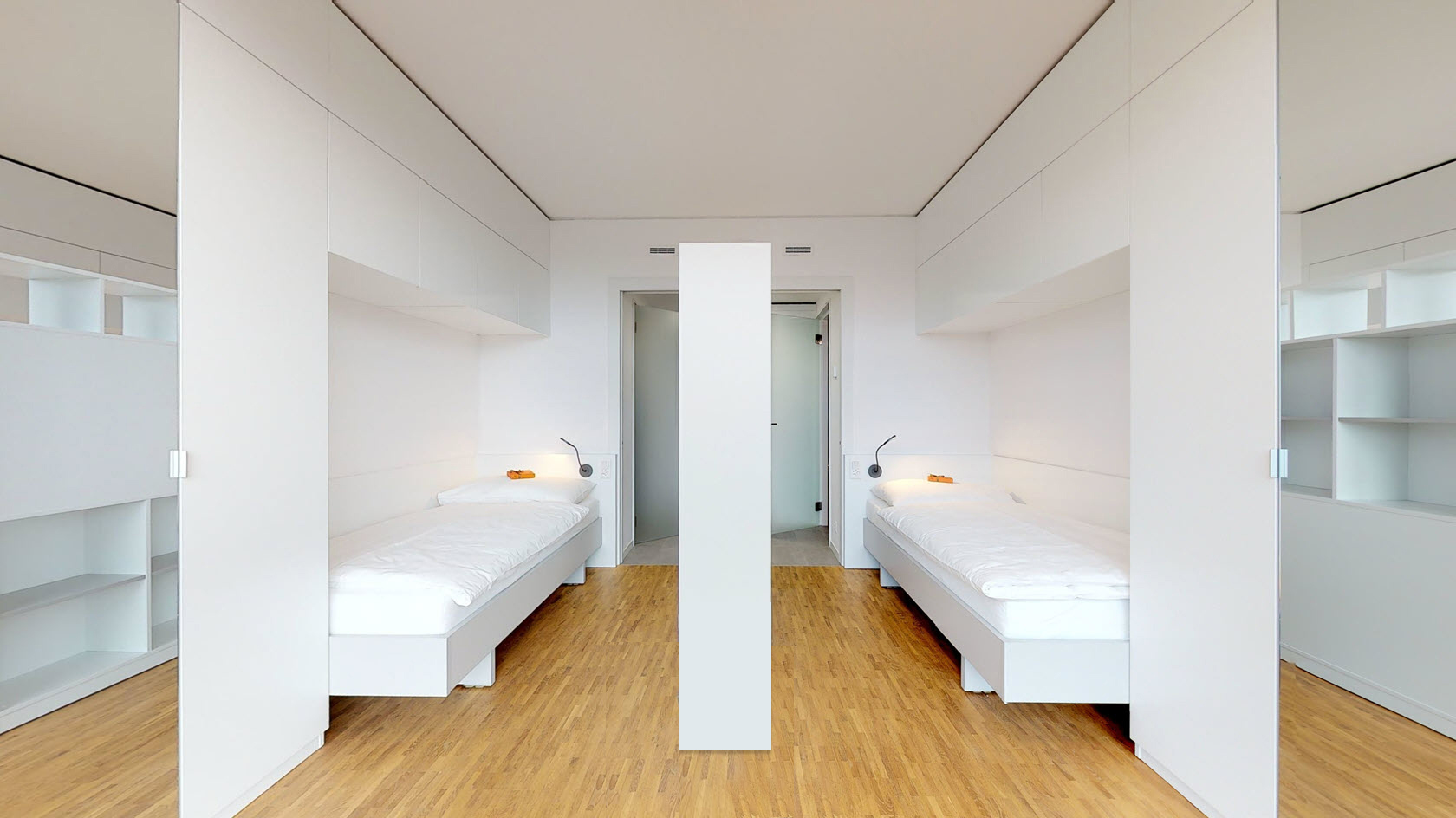
EHL students enjoy state-of-the-art facilities and modern, energy-efficient accommodations that set a new benchmark for campus living since 2021. Source: EHL Hospitality Business School
2. Popular student areas to live in Lausanne
If you’re an EHL student and wish to stay on campus, the residence area offers single and double rooms. These accommodations resemble a hostel but include hotel-like touches for added comfort. However, they are primarily reserved for Preparatory Year students, with only a few single rooms available for other students — and these are in very high demand.
For those seeking more independence, the NeighborWood Residences is another popular option, reserved exclusively for EHL students. Michaud lives there and loves it. The apartment-style complex includes studios and shared units for two to four people. “These accommodations are like hot tickets, it’s like trying to get Taylor Swift tickets because they’re hard to secure,” she says.
Booking opens at 7 a.m., and spots disappear quickly. The appeal is clear: it’s fully furnished, affordable, and right next to EHL. With no need to buy furniture or spend on transport, many students find it ideal.
For those considering off-campus options, certain areas in Lausanne are particularly popular among students, especially EHL attendees. One such option is the Yellow Houses, which host many EHL students. Areas like Ouchy are farther out, but offer scenic surroundings and a bit more separation from school life. “In general, Lausanne is very safe, and almost anywhere is a good place to live,” Michaud says. “There’s no ‘bad’ area — just more expensive ones.”
A bit further away, just a short distance from EPFL, Les Triaudes in Ecublens offers another great option. It puts students in the heart of the campus while still being close to the lake, nature, and the center of Lausanne.
The complex has 194 apartments designed exclusively for students, including shared studios and units with two to five bedrooms. New construction, easy access to public transport, and a prime location next to EPFL make Les Triaudes an appealing choice for those who want both convenience and a vibrant campus life.
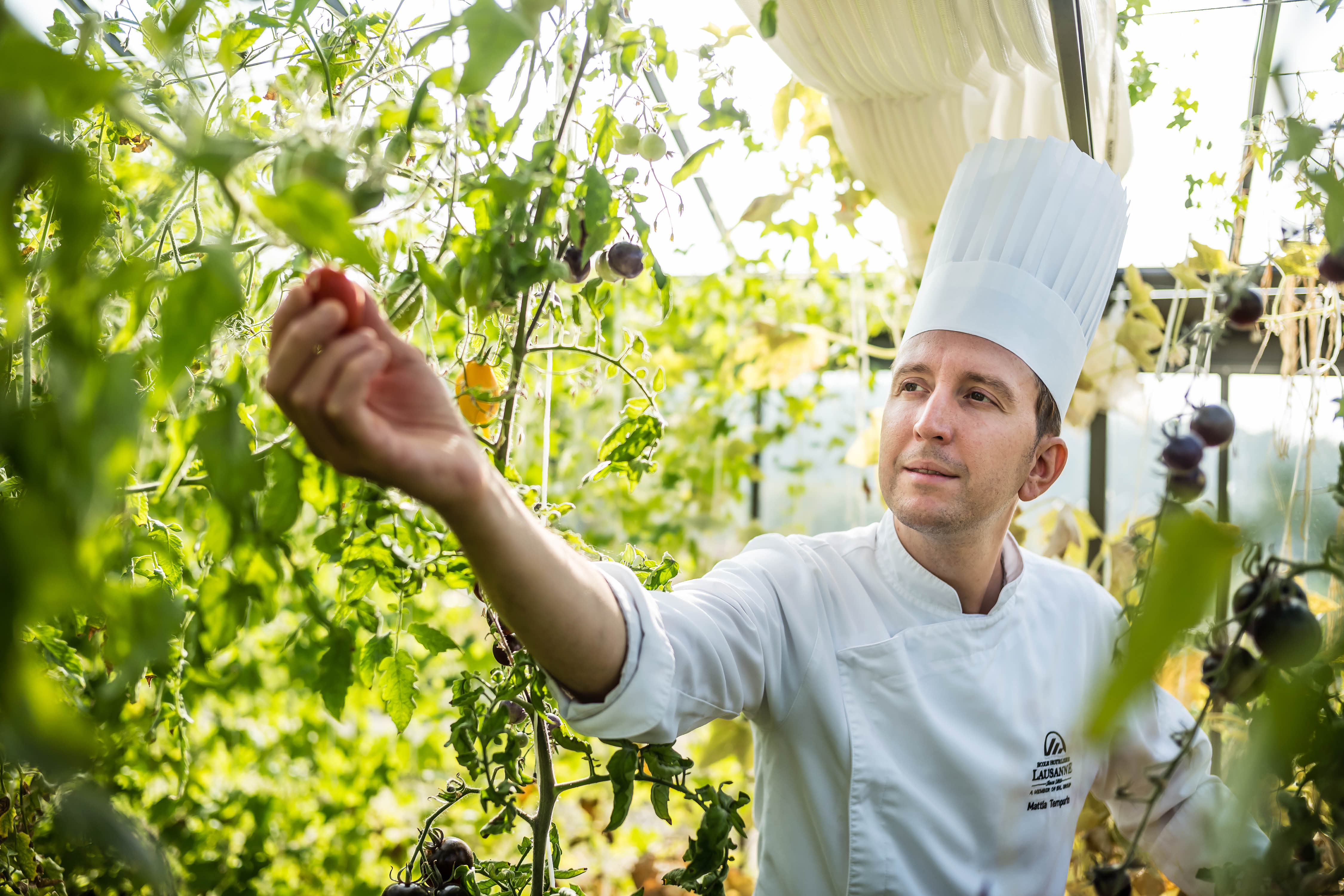
Students can save money and enjoy surprise meals by getting end-of-day food baskets from Migros and Coop, tailored to their dietary preferences. Source: EHL Hospitality Business School
3. Groceries for every taste and budget
For everyday shopping, several major supermarkets are popular, including Aldi, Denner, Migros, and Coop. Some students prefer higher-end stores, believing the quality to be better. Michaud, for example, often chooses Migros, which she considers a good balance between price and quality. Coop and Migros are widely available, making them convenient for most people.
Those watching their spending often turn to Denner or Aldi for lower prices. Even so, Michaud still shops at Migros for its quality, while keeping an eye out for discounts.
“What I often do is look for discounted items — for example, meat that’s about to expire, she says. “Sometimes there’s a 40% discount if it’s expiring the next day. If I know I’m going to cook it that day, I’ll take the cheaper one. It’s still fresh and safe, just more affordable.”
And if you’re an Asian student, the city centre offers a selection of grocery stores, from Japanese and Indian to Sri Lankan and Malaysian.
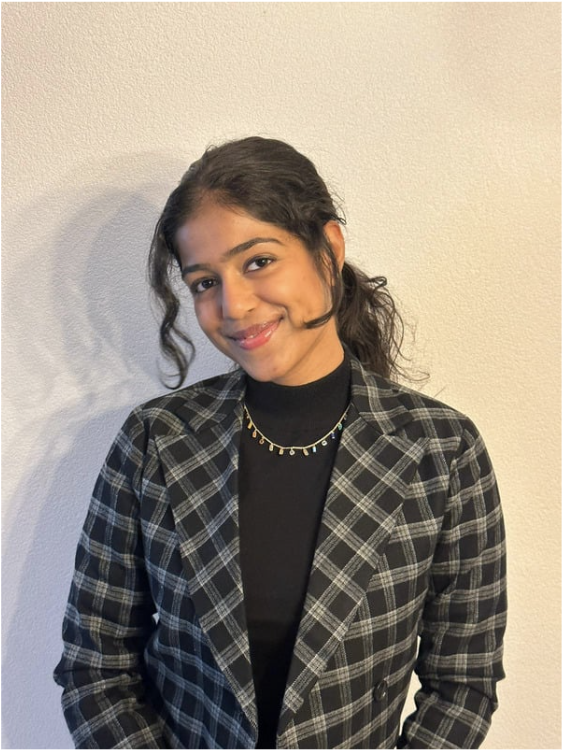
Vedika Bansal is pursuing a Bachelor of Science in International Hospitality Management at EHL Hospitality Business School. Source: EHL Hospitality Business School
4. Smart ways you can save big
Lausanne is known to be one of Europe’s most expensive cities. But you can have a good life if you know the basics.
Many cafes, restaurants, and even brunch spots in Lausanne offer discounts, as do certain hotels. All it takes is showing a student ID. These perks are not limited to Switzerland. Through global student benefits networks, discounts are available in parts of Asia, Europe, and beyond.
Health insurance is another area where students can save. While some arrive with international coverage from their home country, local options can be more affordable.
The insurance offered by Helsana, for example, costs about the same as some international plans but comes with more benefits, making it a smart switch for many.
Transport costs can add up quickly, but the Swiss Half Fare Card helps cut them in half. “For example, a full-fare ticket from Zurich to Lausanne costs around 70–80 francs,” Bansal says.
“With the Half Fare Card, you pay only 50% of that. The card itself costs about 100–110 francs per year, and you end up saving much more than what you pay for it if you travel even a few times.”
Even grocery shopping has its savings tricks. Stores like Migros and Coop offer surprise food baskets at the end of the day. “You can specify dietary restrictions like lactose-free, gluten-free, or vegetarian, and they’ll create a suitable basket for you,” Bansal says. “It’s cost-effective, and you also get the fun of a surprise meal to plan dinner around!”
Another helpful resource is an app called Too Good To Go, the world’s largest marketplace for surplus food. It connects users to local food suppliers, including bakeries and small eateries, offering unsold food at a steep discount.
“Since these are fresh products that can’t be sold the next day, you can reserve a basket of ‘leftovers’ at a very low price,” Michaud says. “It’s a great way to reduce food waste and save money. The pickup times are usually in the late afternoon or early evening, which works well for most students.”
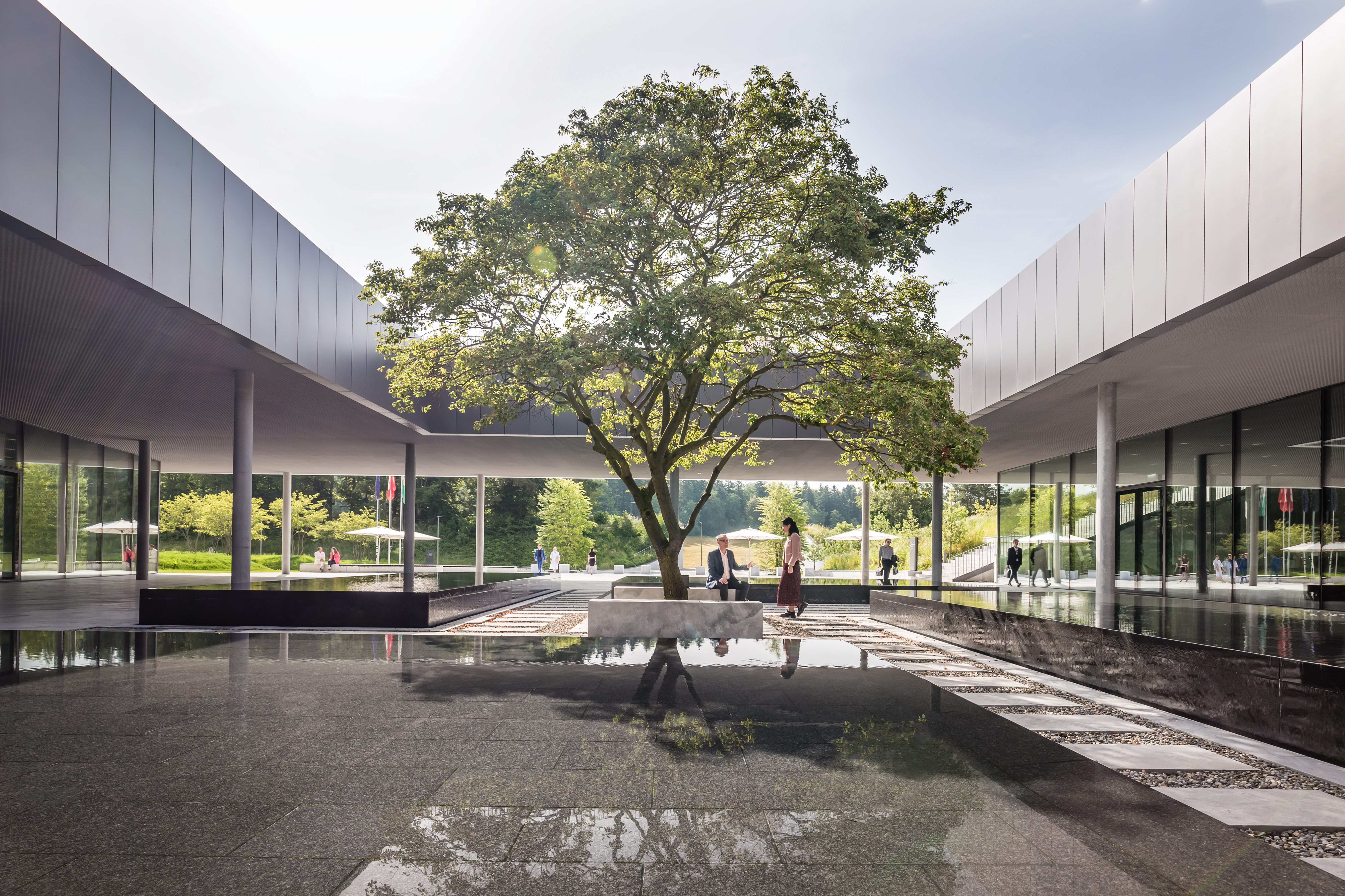
At EHL, student life offers endless evening options, from parties and karaoke to movie and event screenings. Source: EHL Hospitality Business School
5. The city that fits your lifestyle
Lausanne is a fantastic city for those who enjoy staying active. Known as the “Olympic Capital,” it hosts events such as triathlons, marathons, and the renowned Lausanne Marathon. Throughout the year, you can find plenty of sports activities to join.
If you are at EHL, the school often encourages you to participate, sometimes even covering registration fees for select events.
Life in Lausanne is not all about sports. Your evenings can be as relaxed or lively as you want them to be. You might enjoy a quiet dinner at home, head out for drinks, or make a night of it with dinner followed by an afterparty. The city’s nightlife is rich, and concerts in nearby Montreux or Geneva are just a short trip away.
With universities like UNIL and EPFL in town, you will always find student-friendly events — from summer beach parties to open-air festivals like Paléo.
As Bansal puts it, “One evening, you could be out dancing, and the next morning, you could take a train to Lavaux and go hiking through the vineyards.”
In fact, Bansal has done quite a few beautiful hikes. “One of my favourites was Oeschinensee, I spent the whole day there, and it was stunning,” she says. “I also hiked in Les Mosses, which offers some scenic routes. Then there’s Lake Blausee, that hike was part of a very memorable day for me.”
If you prefer a slower pace, Lausanne offers peaceful lakeside spots perfect for reading or simply taking in the view.
And if fitness is your thing, you can check out Le Cube, a popular bouldering and rock climbing gym, where EHL students get a discount. “At the end of the day, it all comes down to what kind of lifestyle you’re looking for,” Michaud says. “Lausanne has something for everyone, you just need to know where to look.”








